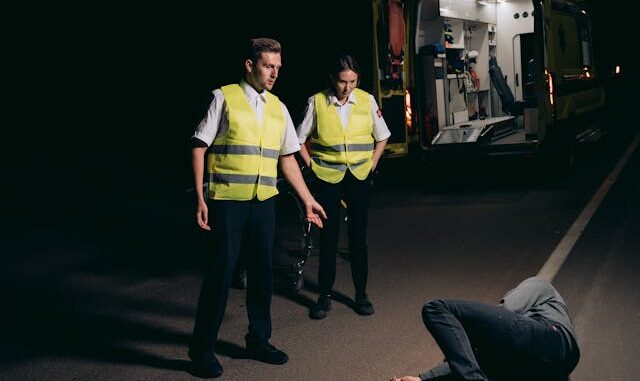
Experiencing a car accident in Ontario can be overwhelming, especially when it comes to dealing with law enforcement and conveying witness information effectively. This article provides comprehensive guidance on how to handle witness information after a car accident, ensuring clarity, accuracy, and support for your case.
Importance of Witness Information
- Supporting Evidence: Witnesses can provide crucial firsthand accounts of the accident, including details about how the collision occurred, traffic conditions, and any contributing factors. Their testimony can corroborate your version of events and strengthen your claim.
- Independent Perspective: Witnesses offer an independent perspective on the accident, which is valuable for determining fault and liability. Their statements can provide unbiased insights that complement police reports and other evidence.
When to Gather Witness Information
- Immediately After the Accident: If you are physically able and it is safe to do so, gather witness information at the accident scene. Witnesses’ memories are freshest immediately after the incident, ensuring accurate and detailed accounts.
- Contact Information: Obtain witnesses’ full names, phone numbers, and email addresses. This information allows you or law enforcement to follow up with witnesses for additional statements or clarifications as needed.
Communicating Witness Information to Police
- Inform Law Enforcement: When police arrive at the accident scene, inform them that there are witnesses who observed the accident. Provide the officers with the contact information you collected from witnesses.
- Accuracy and Detail: Clearly convey the details provided by witnesses to the police. Include specific statements about what witnesses saw or heard regarding the accident sequence, actions of drivers involved, and any other relevant observations.
Ensuring Witness Statements Are Included
- Police Report Inclusion: Request that the police include witness statements in their accident report. This ensures that witness information is officially documented and considered in the investigation and liability determination.
- Follow-Up: If necessary, follow up with the police after the accident to confirm that witness statements were included in the report. This allows you to address any discrepancies or ensure all relevant information is documented.
Validating Witness Credibility
- Identifying Reliable Witnesses: Prioritize witnesses who are willing to provide their contact information and who have a clear view of the accident. Reliable witnesses include bystanders, passengers in other vehicles, or pedestrians near the scene.
- Witness Cooperation: Encourage witnesses to cooperate with law enforcement and provide accurate statements. Ensure they understand the importance of their testimony in helping resolve the accident investigation fairly.
Legal Considerations
- Legal Significance: Witness statements can be crucial in insurance claims and legal proceedings. They provide independent testimony that supports your version of events and strengthens your position in disputes over fault and liability.
- Protection of Witness Information: Respect the privacy of witnesses and avoid sharing their personal information with unauthorized parties. Ensure that their contact details are used solely for the purpose of accident investigation and resolution.
Additional Tips for Handling Witness Information
- Documentation: Document witness statements immediately after they are provided. Take notes or record statements electronically to accurately capture details and avoid discrepancies.
- Witness Collaboration: Encourage witnesses to cooperate with insurance adjusters or legal representatives if their statements are needed for further investigation or testimony in court proceedings.
Conclusion
Effectively handling witness information after a car accident in Ontario requires clear communication, attention to detail, and respect for legal protocols. By promptly gathering witness contact information, conveying their statements to law enforcement, and ensuring their inclusion in police reports, drivers can strengthen their position in insurance claims and legal disputes.
Remember, witnesses play a critical role in providing independent and credible accounts of the accident. Their cooperation and accurate testimony can significantly influence the outcome of investigations and support fair resolutions following a car accident in Ontario.
In summary, proactive management of witness information contributes to a thorough accident investigation process and enhances the reliability of evidence presented in insurance claims or legal proceedings. By following these guidelines, Ontario drivers can navigate the aftermath of car accidents with confidence and ensure their rights are protected throughout the claims process.
